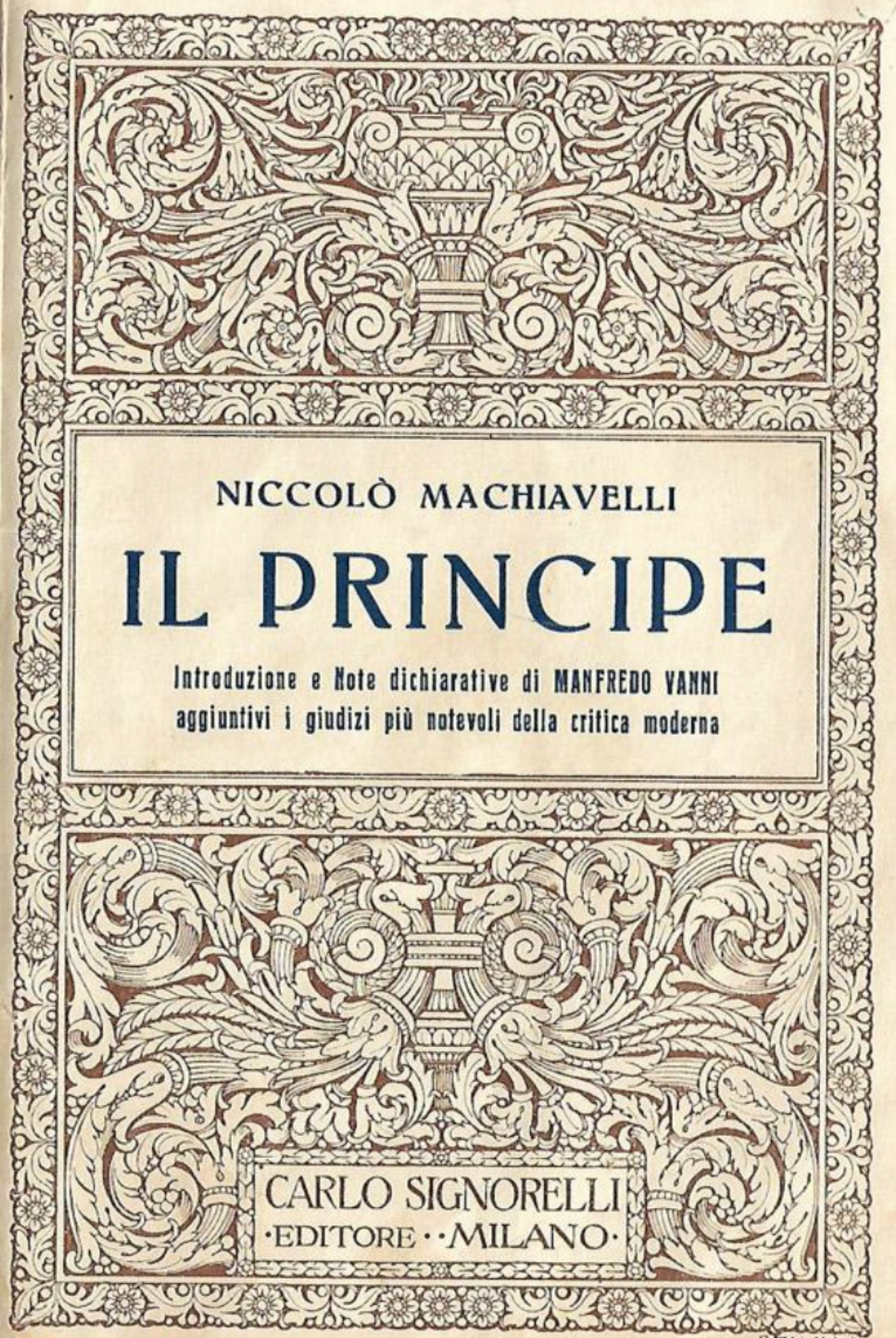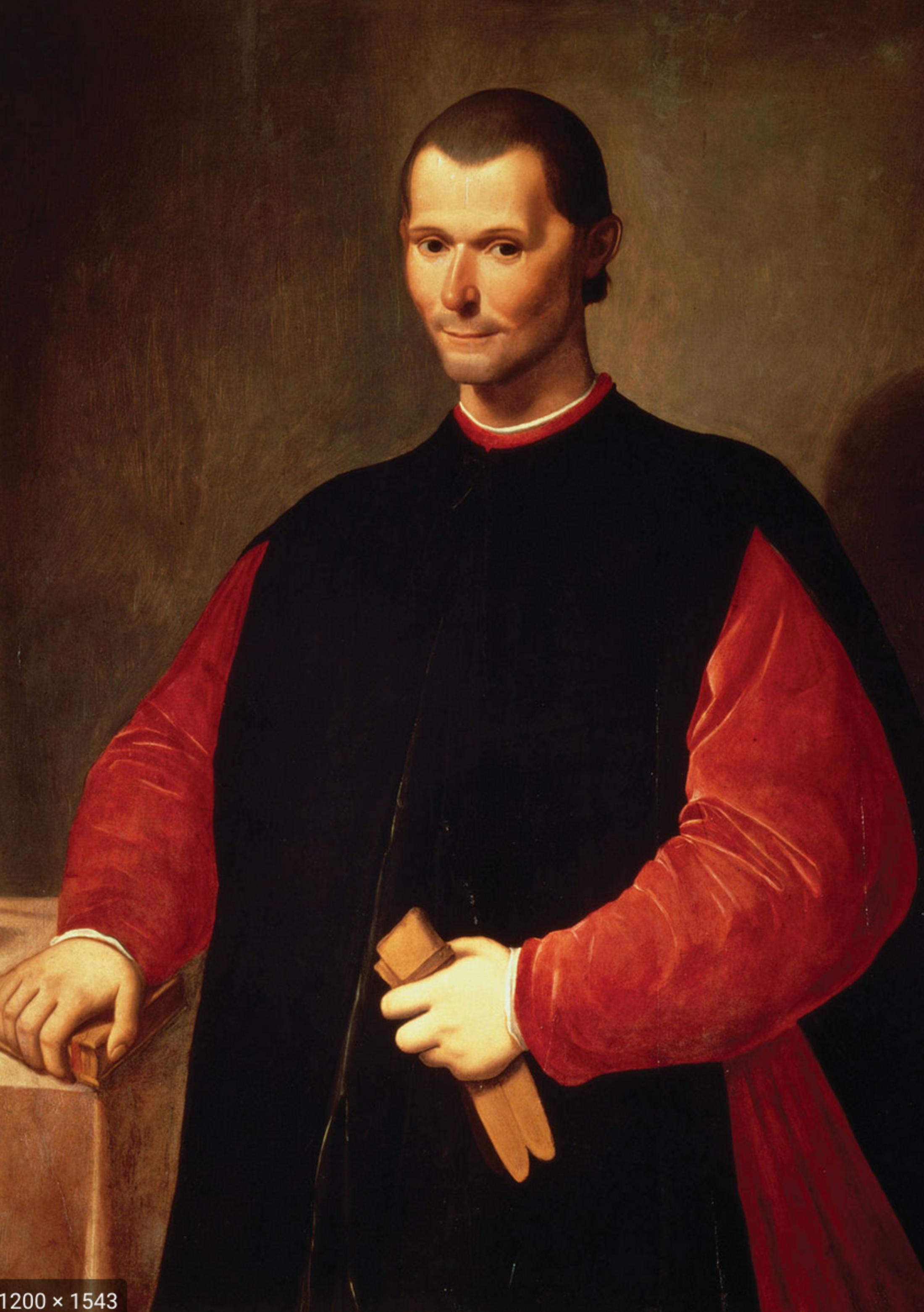There can be few political treatises better known around the world than The Prince, a short, accessible, well-presented text by Niccolò di Bernardo dei Machiavelli. Written in 1513 when Machiavelli’s employers, the Medici family, had him imprisoned, it became an immediate success as of its first publication in 1532.
It was a deserved triumph: as Machiavelli himself declared, “during the fifteen years I have given to the study of statecraft I have neither slept nor idled”. First in Italy, and then across Europe, the work was appreciated for its striking simplicity and clarity.

Enlargement : Illustration 1

But while no-one could deny the intelligence behind the text, it also caused scandal. Il Principe, its title in Italian, did not resemble the traditional type of texts of political philosophy, which for the most part insisted on the importance of morality and piety, but instead was clearly positioned in an approach that was more pragmatic than edifying.
Machiavelli’s treatise was presented like a veritable practical manual of techniques and methods for princes of his time, and those to come, on the means to obtain, exercise and maintain power. All of the means, in fact.
It represented a rather rare candour amid the many other, rather enervating, educational treatises, and it earned Machiavelli a somewhat ambiguous posterity. One of the rare authors to lend their name to a certain conception of political practice, Machiavelli and his work are associated in the collective memory with an immorality regarded as a way of life.
To be Machiavellian is to be underhand, cunning, unscrupulous and scheming, ready to commit any meanness, any injustice and every cruelty to obtain power and keep it – and the list is long indeed of leaders accused, to a mixture of horror and admiration, of being Machiavellian, and ready to authorise every abuse in the name of the reason of state.
This cynical doctrine is resumed in that well-known phrase “the end justifies the means”, which is supposed to have come from The Prince.
The phrase that didn’t exist
But…to get straight to the point, those five words appear nowhere in the Italian text of The Prince nor any of the translations of it. They also do not feature in any other work by the Renaissance thinker, whether these be in his political reflections (which notably include Discourses on the First Decade of Titus Livius and The Art of War) or among the long list of theatrical and poetic writings like The Mandrake, a little gem of burlesque comedy and cynicism.
In The Prince, the closest he got to the celebrated phrase is found in Chapter 18:
“Everyone sees what you appear to be, few really know what you are, and those few dare not oppose themselves to the opinion of the many, who have the majesty of the state to defend them; and in the actions of all men, and especially of princes, which it is not prudent to challenge, one judges by the result.
For that reason, let a prince have the credit of conquering and holding his state, the means will always be considered honest, and he will be praised by everybody; because the vulgar are always taken by what a thing seems to be and by what comes of it; and in the world there are only the vulgar, for the few find a place there only when the many have no ground to rest on.” (1)
But that passage is still very removed from the total cynicism that is expressed in the phrase “the end justifies the means”. Machiavelli says that it is afterwards and in the case of success that the population would consider the means to be “honest”, but he does not recommend that the prince should employ the worst possible acts, he considers that “the vulgar” are only interested in “what comes of it”.
An old cliché
In passing let it be said that to believe that Machiavelli invented Machiavellianism is an easy if erroneous assumption. At the beginning of the 16th century, thinkers and philosophers had for some time been ruminating on the question of the relationship between morality and political action. The incontestable political, strategic and tactical realism of The Prince was not really anything new – the Greek philosopher Aristotle, among others, wrote largely the same thing many centuries earlier, notably in Book V of his work Politics.

Enlargement : Illustration 2

And while Machiavelli did not write the well-known phrase, we can find versions that are more or less close to it that were written before his time; as in the play Electra by Greek playwright Sophocles and, several centuries later, almost word for word in the second letter of the epistolary poems in Latin The Heroides by Roman poet Ovid, who wrote exitus acta probat – meaning “the outcome justifies the deed”. It was a work that Machiavelli had read.
The idea is touched upon in another phrase in Latin, which is ad augusta per angusta. This is often translated into English as meaning “through difficulties to honours” and in French as “towards summits by narrow paths”. Either way, the sense is that achieving glory does not come without difficulty, but the fact that it is the motto for the French foreign intelligence services, the DGSE, underlines the somewhat ambiguous notion of “narrow paths”.
But closer to Machiavelli, the notion of “the end justifies the means” is also to be found in Mémoires by the Flemish chronicler and diplomat Philippe de Commines (1447-1511). A former chamberlain to the Duke of Burgundy, Charles the Bold, Philippe de Commines ended up betraying his master and entering into the service of French king Louis XI, and by doing so was given the cushy position of seneschal of Poitou.
Beyond justifying his own political path, Philippe de Commines made the notion a working principle in the king’s government. Indeed, Louis XI was himself notorious for never shying from any manoeuvre in order to get what he wanted, spinning his web and earning the nickname “universal spider”.
A misunderstood reflection?
If Machiavelli did not actually write the phrase, had he at least thought it? Nothing is less certain, and it is here that adding in a bit of context allows us to better understand what Machiavelli might have had in mind – as pointed to by French historian Patrick Boucheron in a 2017 book about the Florentine, Un été avec Machiavel.
The period that overlaps the 15th and 16th centuries was a troubled one in what is now Italy. It was wealthy, but divided between unstable states and cities and became a favourite playground for games of influence by European powers (such as France, Spain, the Holy Roman Empire and Switzerland) which fought between each other according to their alliances and interests, regularly invading and pillaging the peninsula.
Machiavelli, meanwhile, dreamed of a united country, capable of facing up against foreign powers. That pre-supposed the emergence of a sufficiently strong leader who could, on the one hand, guarantee peace and stability at home, and security from invasion on the other. After a period of 15 years when he served as a diplomat and secretary of the chancellery of the Florentine Republic, the collapse of the latter in 1512 led to his imprisonment and disgrace.
This background gives another sense to Machiavelli’s work, and his thinking is made more clear in a passage from another of his works, Discourses on the First Decade of Titus Livius. The extract is a commentary on the murder of Remus by his twin brother Romulus at the moment of the founding of Rome. Machiavelli wrote:
“[…] the wise founder of a commonwealth who seeks to benefit not himself only, or the line of his descendants, but his State and country, must endeavour to acquire an absolute and undivided authority. And none who is wise will ever blame any action, however extraordinary and irregular, which serves to lay the foundation of a kingdom or to establish a republic. For although the act condemn the doer, the end may justify him; and when, as in the case of Romulus, the end is good, it will always excuse the means; since it is he who does violence with intent to injure, not he who does it with the design to secure tranquility, who merits blame. (2)
The foundation and the fate of Rome excuses the crime of Romulus, but it is excused after the event, and in the eyes of others. Otherwise put, and as argued by Boucheron and others before him, Machiavelli never discarded the consideration of morality as suggested in the phrase that has been stuck to him.
The end justifies the means, perhaps – but on condition that something superior in itself justifies the end, and which can only be measured afterwards.
-------------------------
1: Translation by W.K. Marriott
2: Translation by Ninian Hill Thomson
-------------------------
- The original French version of this article can be found here.
English version by Graham Tearse


